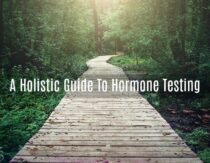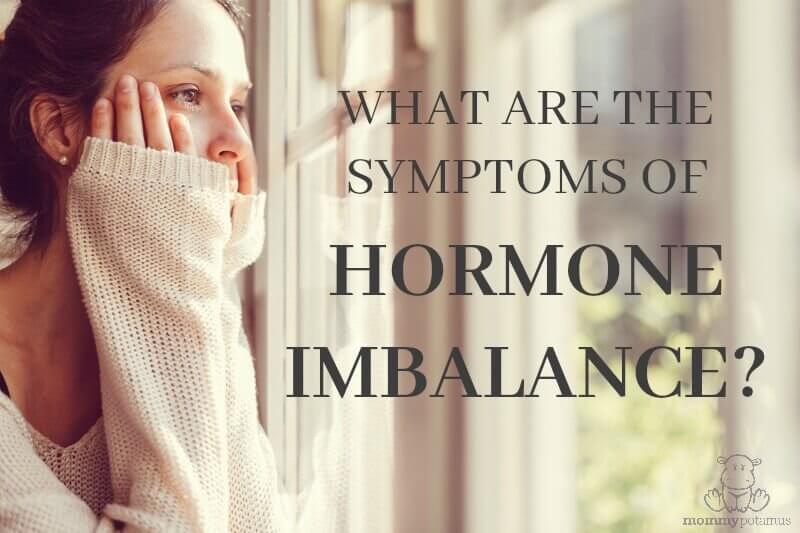
We already know that our heartbeats sometimes synchronize with those we love, but can cuddling accelerate wound healing? Yes! Cuddling and other types of loving affection stimulate the release of oxytocin- also known as the “bonding hormone” – which has been shown to:
- protect the heart (source)
- accelerate wound healing (source 1, source 2, source 3)
- convince you to share your last piece of cauliflower crust pizza with someone you love
I don’t have a study for that last one, but you know it’s true!
When our hormones are working properly, they’re like really good dance partners that two-step through life with us. Or glide. Or bebop. Whatever your style, the point is this: As they dance, sometimes one will start to fall behind or step ahead, creating a hormone imbalance.
Since every cell in our body has receptors for hormones, when something is out of step it can affect seemingly unrelated systems, including the brain, the digestive system, and energy levels.
Before we get to specific signs of hormone imbalance and what they mean, I want you to meet my co-author for this series on balancing hormones. Dr. Natcha Maithai, PhD, FDN-P, RHN is a Registered Holistic Nutritionist and Functional Diagnostic Nutrition Practitioner with a PhD in molecular genetics. She’s passionate about empowering women with hormone balance, and I’m so thrilled to have collaborated with her on this article and several more that will be coming soon.
Okay, let’s jump in!
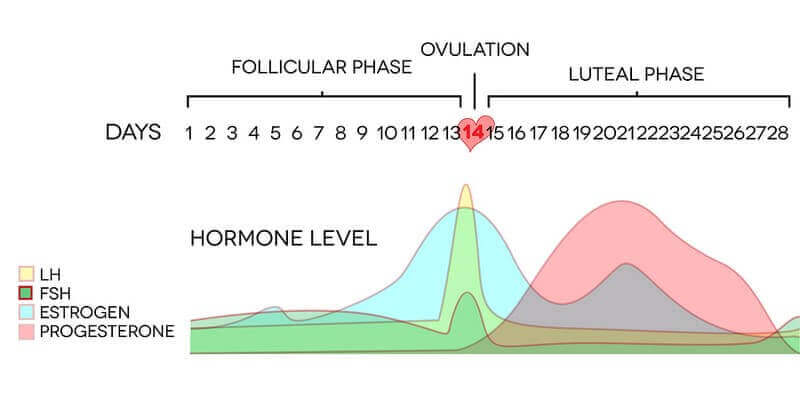
Estrogen and Progesterone – the Tale of Two Dancers
Most of the time, when we talk about our hormones, we talk about our sex hormones, i.e. estrogen and progesterone, which are made by our ovaries and adrenals. When functioning optimally, estrogen and progesterone dance perfectly to the rhythm that is our monthly cycle.
Every month, estrogen builds up our uterine tissue in preparation for ovulation and pregnancy. In addition, estrogen also makes our brains more sensitive to serotonin, which makes us bubbly and happy (source). Estrogen and higher serotonin also suppresses appetite, which is why we often get hungrier after ovulation. (source)
On the opposing side we have progesterone, which rises as estrogen falls following ovulation. Progesterone maintains our uterine lining during the luteal phase, as well as pregnancy. In addition, progesterone helps us sleep and quiets our anxiety by making our brain cells more sensitive to the calming neurotransmitter called GABA. (source)

What Causes Hormone Imbalances?
As we discussed earlier, women’s hormones are particularly delicate because we have many hormones that rise and fall together every cycle like a fine-tuned dance. Because our hormones prepare us for pregnancy, mother nature doesn’t want us to become pregnant when conditions are not ideal. Therefore, our hormones are much more sensitive to stress and lifestyle factors than men’s.
The grandmaster of our hormones, the hypothalamus and pituitary in the brain, keeps tabs on our stress levels, our nutrient levels, how much fat we have on our bodies, how inflamed or toxic we are, how much sleep we get etc. Then, the grandmaster will tell the thyroid, adrenals, and ovaries to produce the appropriate levels of hormones, given the situation. After the hormones are used up, our liver steps in to break down the used hormones.
The primary causes of hormone imbalances are lifestyle factors, including:
- Stress can raise cortisol, which can cause a pattern of hormone imbalance called estrogen dominance due to reduced progesterone. In addition, stress can reduce our thyroid function while stealing the resources that our bodies need to make other sex hormones.
- Deranged circadian rhythm – Our hormone grandmaster works in sync with our body clock, which syncs with the day/night rhythm. Many women have hormone imbalances because they are not sleeping well or have deranged circadian rhythm from nighttime blue light exposure. Here are some steps you can take to reduce blue light exposure and optimize your circadian rhythm for sleep.
- Chronic inflammation taxes the stress response system and can have the same effect on hormones as other types of chronic stress (source). This type of stress tends to dial hormones toward weight gain and insulin resistance (source).
- Hormone disruptors and toxins can interfere with estrogen metabolism, especially in the breakdown of excess estrogens. Hormone disruptors, especially xenoestrogens like BPAs, parabens, and perfume, can therefore contribute to estrogen dominance.
- Blood sugar problems can be very stressful to our bodies. In women, high blood sugar or insulin resistance can lead to increased testosterone, or polycystic ovarian syndrome (PCOS). Conversely, low blood sugar is stressful to the body and can contribute to stress-related hormone imbalances.
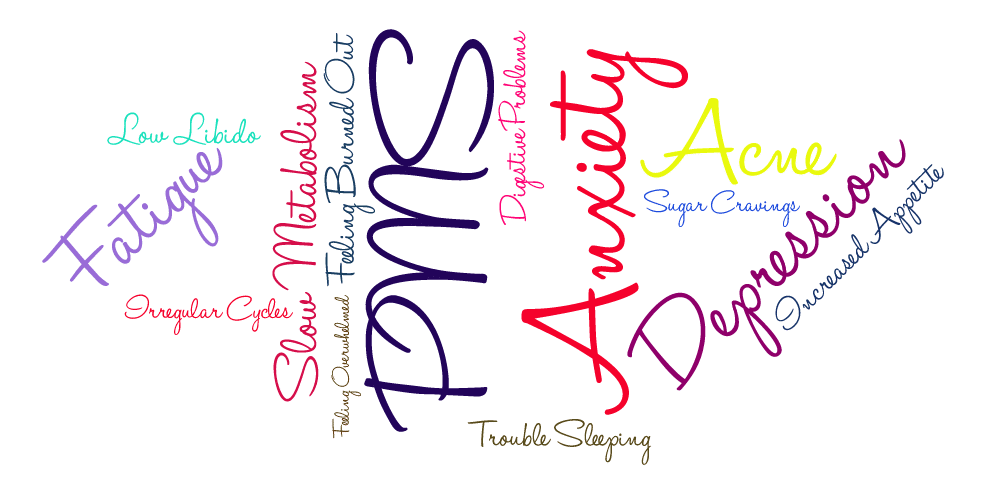
Symptoms of Hormone Imbalance
Symptoms of hormone imbalance are so common now that they may seem like the new normal, but they really are not. Here’s a list of some of some common symptoms:
- PMS
- Anxiety/depression
- Difficulty maintaining a healthy weight
- Fatigue
- Acne
- Digestive problems
- Increased appetite (often in the form of sugar cravings)
- Trouble sleeping
- Irregular cycles
- Low libido
- Feeling easily overwhelmed or burned out
Fortunately, once we identify our hormone imbalances and are able to link the lifestyle root causes that led to the problem, we can take steps to balance our hormones naturally.
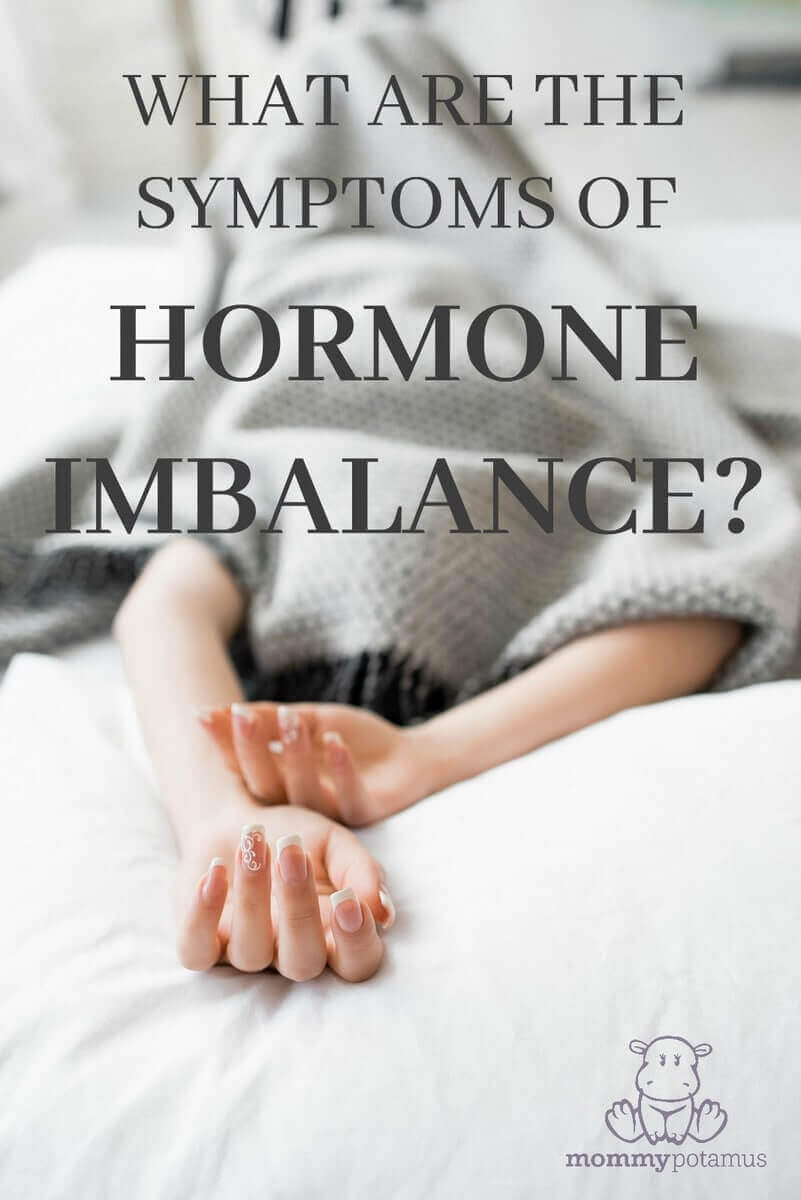
Patterns of Hormone Imbalance
Earlier we talked about the dance between estrogen and progesterone. Now let’s take a look at what happens when one or both of these fall out of step:
The most common patterns of hormone imbalance are estrogen dominance and adrenal fatigue, which can happen at the same time.
Estrogen dominance is when we have too much estrogen relative to progesterone. Many women with estrogen dominance have outright high estrogen, which can present a cancer risk. (source) However, it is possible to have estrogen dominance with low estrogen, with even lower progesterone, which is why it is beneficial to get your hormones tested.
Another benefit of testing is that many symptoms can be related, so it is sometimes challenging to pinpoint what’s going on. For example, depression may be related to excess estrogen, low estrogen, excess androgens or low thyroid. (source) Here’s a guide to hormone testing that may be helpful.
Adrenal fatigue, or HPA axis dysfunction, refers to patterns of hormone imbalances caused by chronic stress, deranged circadian rhythm, and blood sugar problems.
In early stage adrenal fatigue, the body produces higher-than-normal levels of hormones that help our bodies manage stress: cortisol and DHEA. These hormones are meant to help us deal with short-term stress (think running away from tigers) rather than chronic stress. In later stage adrenal fatigue, the constant demands made on our adrenal glands impair their ability to produce the hormones it usually makes: cortisol, DHEA, plus estrogen, progesterone and testosterone.

Three Things You Can Start Doing Now
Children’s cells live on in their mother’s bodies long after birth – up to several decades – and researchers believe they sometimes come to the mother’s aid during illness or trauma. Our heartbeats sometimes synchronize with loved ones when they’re nearby. Our bodies are so connected to our environment that taking a stroll in a forest raises immune function. If there’s anything we can learn from human body, it’s that our bodies work in intricate unison in amazing ways we are just beginning to understand.
With that in mind, our hormones do not simply throw themselves off balance without reason. If you are experiencing hormone imbalances, your body is probably doing it’s very best to keep things afloat in a storm of modern stresses.
Here are three things you can start right now to help balance hormones:
- Get deep, restorative sleep
- Eat a healthy, nutritious diet that is blood sugar friendly
- Reboot your body’s stress response
Ready to dive deeper?
Here are the next two posts in this series:
About the authors: This article was coauthored by Heather Dessinger Dr. Natcha Maithai (PhD). Dr. Maithai is a Registered Holistic Nutritionist and Functional Diagnostic Nutrition Practitioner with a PhD in molecular genetics. After becoming frustrated with hormonal problems that went undiagnosed despite her best efforts, Dr. Maithai applied tools she learned as a cancer researcher to dive into available scientific literature and find a holistic solution. You can find her health insights, biohacking tips, and information about working with her on her website, Natcha Maithai.
This article was medically reviewed by Dr. Anna Cabeca, a gynecologist and obstetrician and a menopause and sexual health expert. As always, this is not personal medical advice and we recommend that you talk with your doctor.

